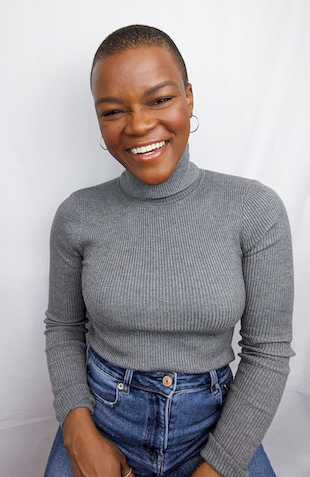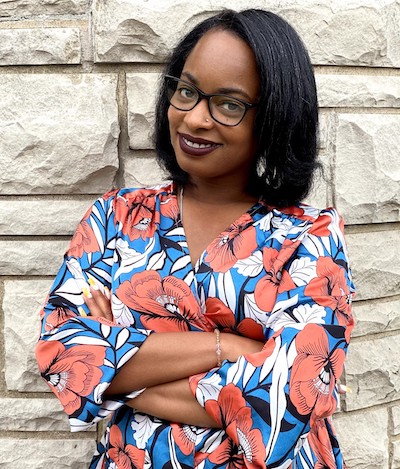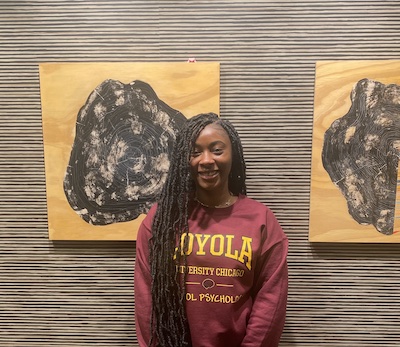DFI Recipients 2021
2021 Recipients
Sharnequa Hunter (PhD student, School Psychology): "My work and research in The Graduate School lie at the intersection of school psychology and urban education. I am interested in school-wide practices that promote mental health awareness and wellbeing, resilience, equity, and learning in urban schools. My specific research curiosities include school-based mental health services and interventions, culturally sensitive and trauma-informed practices, and restorative justice. I’m passionate about developing a comprehensive understanding of how these practices improve the academic and social-emotional outcomes of students from various racial/ethnic, cultural, and economic backgrounds. Additionally, I’m interested in how school psychology training programs prepare students to become culturally competent practitioners who can recognize, address, and dismantle educational inequities in urban schools. My participation in the DFI fellowship program will prepare me to enter the academic job market upon graduation with a doctoral degree in School Psychology. Through mentorship, networking, and professional development opportunities, I hope to further develop my teaching and research philosophies."

Moriah Johnson (PhD student, Sociology): "As a PhD student in Loyola’s Sociology Department and Graduate fellow at Loyola’s Center for Urban Research and Learning (CURL), my research has ranged from exploring the intersectional needs of Black women in a Chicago neighborhood to understanding the experiences of students of color at Loyola and in Higher Education more broadly. As I move forward with my PhD, I am developing my research on the experiences of students of color in higher education and how higher education institutes choose to measure diversity numerically, while excluding the perspectives of students of color in those metrics.
Given my research, I am extremely thankful and excited to receive the Diversifying Higher Education Faculty in Illinois fellowship. As I seek to further understand how higher education shapes our sense of identity and how metrics of diversity may further inequality, my position in higher education is crucial to that knowledge production. The DFI fellowship gives me an opportunity to prioritize my research and teaching as I finish my PhD, while reducing the financial burden that is put on so many PhD students particularly students of color in similar positions. Too many people of color are excluded from accessing higher education as students, let alone completing a PhD and gaining faculty positions. I know the DFI is giving me and other students of color an opportunity to shine on the basis of our merits and to subvert the barriers that would otherwise keep us from becoming the professors we’ve imagined and that students deserve. I know that with the funding and support of the DFI, I will be prepared to move into a full faculty position at an Illinois institute following completion of my PhD. As I move forward, I am excited for more opportunities to represent to others (especially students of color) the vast world of possibilities for Black and Brown people as critical scholars, conscious intellectuals and knowledge producers."

Janese Nolan (PhD student, Cultural and Educational Policy Studies): "I am entering my 5th year as a PhD Student in Cultural and Educational Policy Studies in the School of Education. A Chicago native, I am a 2007 Golden Apple Scholars Award recipient. After earning my BA in English from the University of Illinois at Urbana, I spent 6 years as a middle and high school Language Arts teacher on Chicago’s south side. While teaching full time, I earned my M.Ed. in Instructional Leadership from UIC. In my time as a Rambler, I helped to co-found Loyola’s Black Graduate Student Alliance and served as its inaugural President. Equity and anti-racism are at the core of my advocacy and service work.
I am currently working on my dissertation which addresses the need to attract and retain a more diverse teaching population by asking how millennial Black female teachers navigate the racialized experiences they have in K-12 schools. Building upon existing research which identifies racism as one of the leading causes of Black teacher attrition, I am focusing my research on the navigational techniques employed by millennial Black female teachers when faced racism, sexism, and misogynoir. In addition to working on my dissertation, I am completing research projects in Critical Whiteness Studies and Anti-Blackness in education policies. The DFI fellowship’s tuition remission and stipend award will allow me to focus exclusively on research and publishing during what I hope will be my last year in Grad School."



